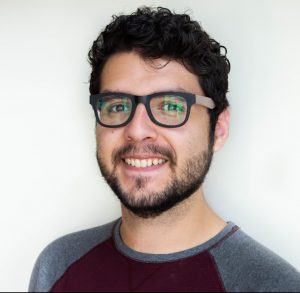
This year, we’re on the lookout for department members who are working to help us support our commitment to change by seeking equity, social justice, and anti-racism.
Carlos Chavez, a PhD student in the Department of Educational Psychology’s quantitative methods in education (QME) program, came highly recommended. We caught up with Carlos to learn more about the work he’s been doing to support students in the department, University, and broader community.
Q: What service/mentorship activities have you been leading/participating in?
With respect to service to the field, for the last two years, I have participated as a panelist in bias and sensitivity for the Minnesota Comprehensive Assessments (MCAs). I try to use my social and academic backgrounds as a panelist to flag or discuss test questions that could unfairly affect a students’ score for reasons beyond the content for which they are being tested.
The last couple of years I have also participated with the Diversity in Psychology program for undergraduate students who may be interested in attending graduate school at the University of Minnesota. I do my best to provide some mentorship on applying to graduate school and talking about what it is like to be a student here when there is not a diverse body of students.
Another activity I enjoy participating in is the student led QME Bag Lunch. It was started by another person in my cohort to bring in diverse thoughts from the department to talk about quantitative methods. However, it has also evolved into a sort of professional development support group where we can help each other write our CVs and talk about how to effectively carry out literature searches. I hope that we can keep doing that this year because I think it is a great way to build community across cohorts within our QME program and throughout the department.
Lastly, pre-COVID-19 I really enjoyed making a pot of coffee in the first-floor kitchen that anyone was welcome to take from. I hope to continue doing that when we can all return to the office safely.
Q: What inspired you to lead in this way?
Growing up, my experience with tests has always been, well, bad. It felt like some questions were unnecessarily complicated or were portrayed in contexts that I, or my friends, have never experienced. It is in part why I am curious about educational measurement, but also why I choose to devote a full day of my time doing bias and sensitivity review for tests. I am inspired to provide as unbiased of an assessment as possible while being mindful of diverse experiences and contexts.
Also, I am in part inspired by my own experiences as an undergraduate student and now as a graduate student. I think applying to higher education can be intimidating especially when you do not have family that understands the system, so I try to be someone who can provide a, hopefully, relevant perspective on getting through higher education. Additionally, when you do get into higher education, finding and establishing a strong community can be an immensely powerful asset to have.
Q: What are you most proud of?
I struggle with math and test anxiety, and getting a PhD in Quantitative Methods in Education and focusing on education measurement is a proud step forward in confronting those fears.
Q: How do you hope to apply these skills to your work/life in the future?
Well first, I hope I can use these skills to help develop fair and equitable assessments and help others understand the role of social contexts in assessment.
Second, I would like to be a professor after graduation, so I hope I can use these experiences to develop a strong community and help be a good advisor and mentor.
Q: Anything else you’d like to say to your fellow students and department members?
I hope you all are healthy and safe. The coronavirus pandemic has been difficult to weather, but I hope to see you all again for a cup of coffee at in the Education Sciences Building soon.



